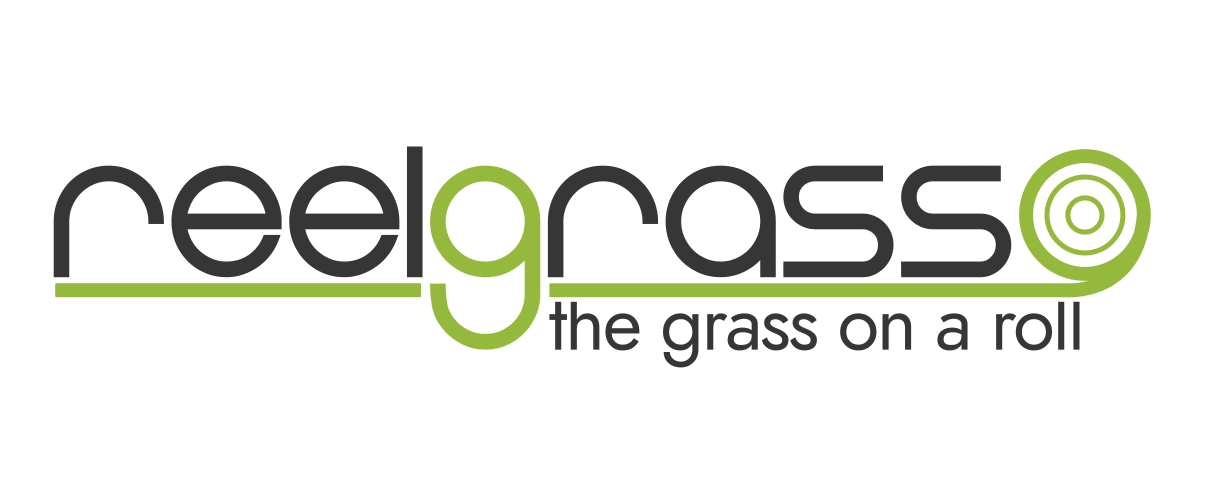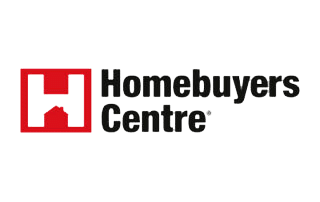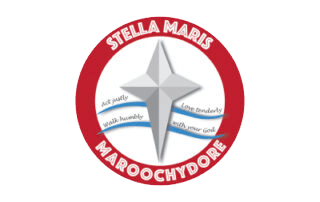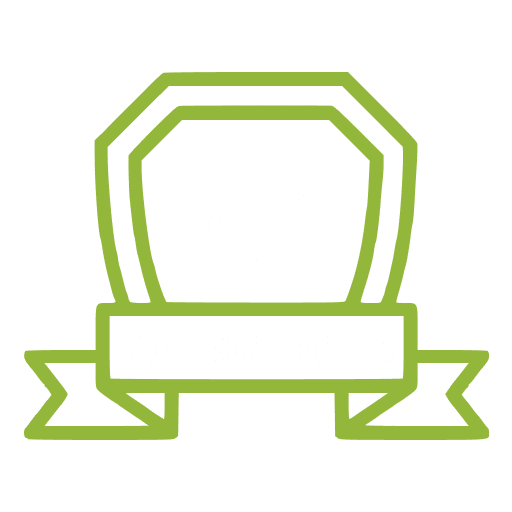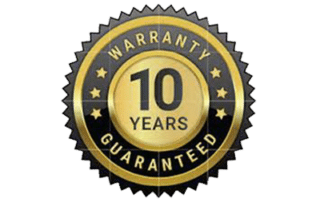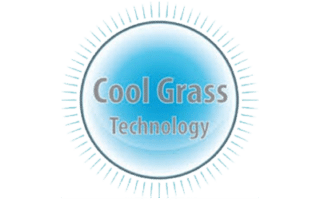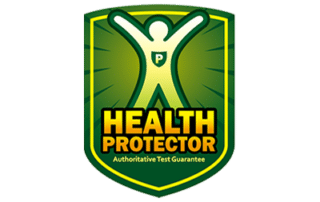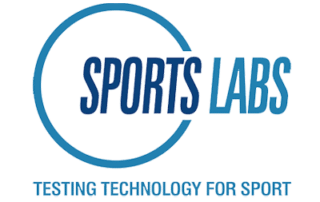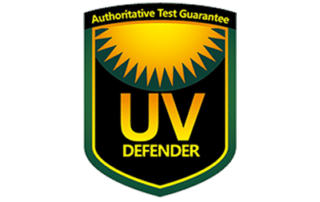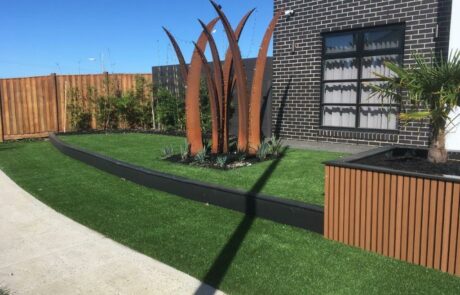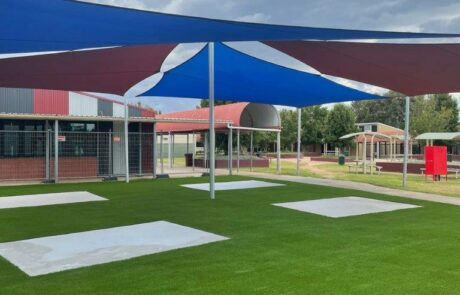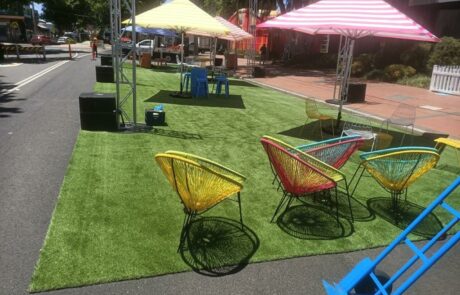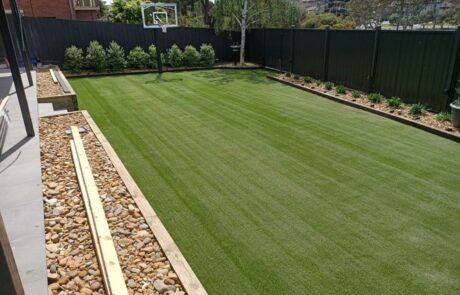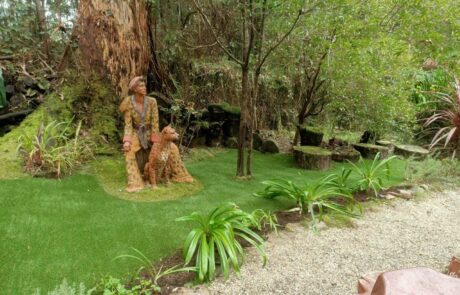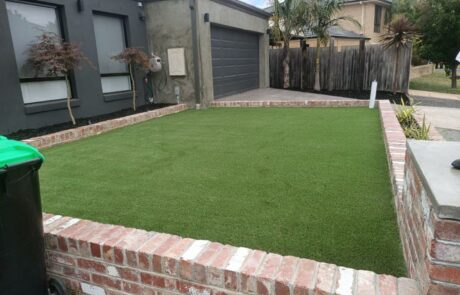Trusted by
Synthetic Grass
Get More From Your Surface With Year-Round Synthetic Sports Grass
At Reelgrass, our premium-quality artificial turf solutions are designed to elevate your sporting experience to new heights.
With a commitment to excellence, our Melbourne-based team ensures that our synthetic grass is engineered to mimic the look and feel of natural grass, providing optimal traction and playability for various sports.
Say goodbye to muddy fields and constant maintenance. With a synthetic surface underfoot, your sporting field offers year-round durability, UV resistance, and excellent drainage, making it ideal for football, soccer, hockey, and more.
Whether you’re looking to future-proof your club or provide a more accessible surface for your members and users, our synthetic surface options can help unlock the full potential of your business.
Learn more by getting in touch with a member of the team on 1300 306 389 or contact us online for an obligation-free quote today.
Is a synthetic surface really appropriate for my club or centre?
Unsure if a switch to artificial grass is a step in the right direction? You may benefit from a synthetic surface if you’re facing any of the following situations:
Frequent weather challenges: If your natural grass field is frequently affected by heavy rain, drought, or extreme weather conditions that make it unsuitable for play, synthetic sports grass can provide a reliable and playable surface throughout the year.
High maintenance costs: Natural grass fields require constant care, including mowing, irrigation, and pest control. If the maintenance costs are becoming too much, switching to a commercially-viable synthetic surface can save you money in the long run.
Limited playability: If your natural grass field becomes muddy and unsafe after rain, restricting sports activities and causing cancellations, synthetic sports grass can offer a consistent and safe playing surface.
Intensive use: If your field experiences heavy foot traffic and intense sports activities that lead to excessive wear and tear on natural grass, synthetic sports grass can withstand such use and maintain its quality for longer periods.
Desire for sustainability: Synthetic sports grass is environmentally friendly as it reduces water consumption and eliminates the need for harmful pesticides and fertilisers.
Allergy concerns: If players or visitors suffer from allergies triggered by natural grass, synthetic sports grass can provide a hypoallergenic alternative.
How much does synthetic sports grass cost?
The cost of synthetic sports grass in Melbourne can vary based on several factors such as the type of artificial turf, the size of the area to be covered, the quality of the material, and additional features like drainage systems or infill options. Generally, synthetic sports grass can cost anywhere from $8 to $15 per square metre, including installation.
For larger projects or professional sports fields, the cost per square foot may be lower due to economies of scale. On the other hand, smaller installations or premium-grade artificial turf can be more expensive.
For the most accurate and up-to-date pricing, reaching out to a member of the team on 1300 306 389 to learn more.
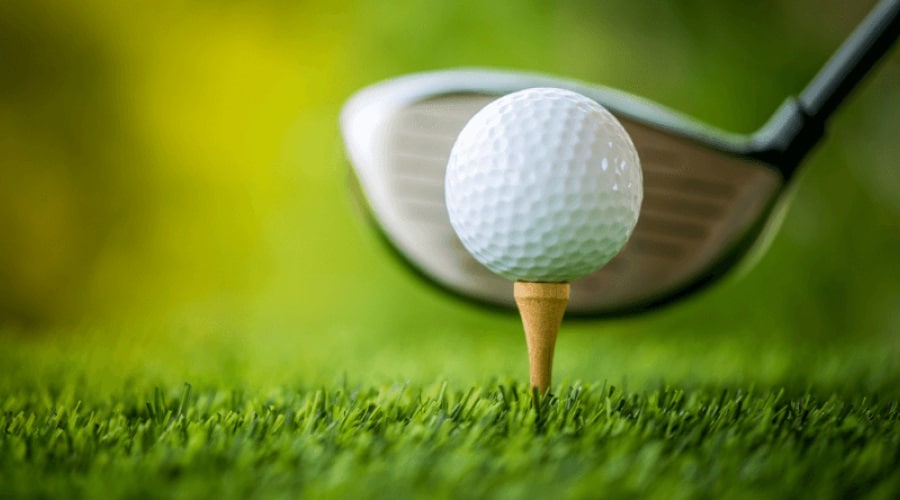
How long does synthetic sports grass take to install?
The time it takes to install synthetic sports grass in Melbourne can vary depending on the size and complexity of the project, as well as the availability of the installation team. Generally, the installation process can take anywhere from a few days to a few weeks.
We understand you need to keep disruption to a minimum, so here’s a rough breakdown of the installation timeline:
Site Preparation: This phase involves clearing the existing vegetation, levelling the ground, and ensuring proper drainage. Depending on the condition of the site, this step can take a day or two.
Base Installation: Creating a stable and solid base is crucial for the longevity and performance of the synthetic sports grass. The base installation process typically takes a day or two, but it may take longer for larger fields.
Artificial Turf Installation: Unrolling and securing the synthetic turf to the prepared base is the most time-consuming part of the process. The installation team will carefully cut and fit the turf to match the field’s dimensions and any specific markings required for different sports.
Infill and Finishing: Adding infill materials (like sand or rubber) to the synthetic turf and brushing the fibres to ensure proper distribution can take another day or two.
Final Inspections: After the installation is complete, a final inspection will be done to ensure everything meets the desired standards and specifications.
How can I identify a professional synthetic sports grass installation team?
✔ Experience and Reputation: A professional company will have a solid track record and experience in the industry. Check for how long they have been operating and read customer reviews or testimonials to gauge their reputation.
✔ Certifications and Standards: Look for certifications or affiliations with recognized sports associations or governing bodies related to synthetic sports grass installations. This indicates their commitment to quality and adherence to industry standards.
✔ Portfolio and Projects: A reputable provider will have a portfolio showcasing their previous installations and projects. This will give you an idea of the quality of their work and the types of sports fields they have worked on.
✔ Expertise and Knowledge: Professionals will be knowledgeable about different types of synthetic sports grass, infill options, drainage systems, and installation techniques. They should be able to provide valuable insights and recommendations for your specific needs.
✔ Customisation Options: A professional company will offer customisation options to tailor the synthetic sports grass to your field’s requirements, including colours, markings, and logo placements.
✔ Warranty and Maintenance Services: Check if they provide warranties for their products and installation services. Additionally, inquire about any maintenance services they offer to keep the field in top condition over time.
✔ Transparent Pricing: Professional companies will provide clear and detailed pricing quotes, including all the costs involved in the installation process.
✔ Excellent Customer Service: Pay attention to how responsive and helpful their customer service is when you inquire about their services. A professional provider will be prompt, courteous, and willing to address any concerns.
✔ Proper Licensing and Insurance: Ensure that the company has the necessary licences and insurance coverage to protect you and your project in case of any unforeseen issues.
✔ Local Presence: Choosing a provider based in Melbourne is beneficial as they will be familiar with local conditions, regulations, and best practices.
